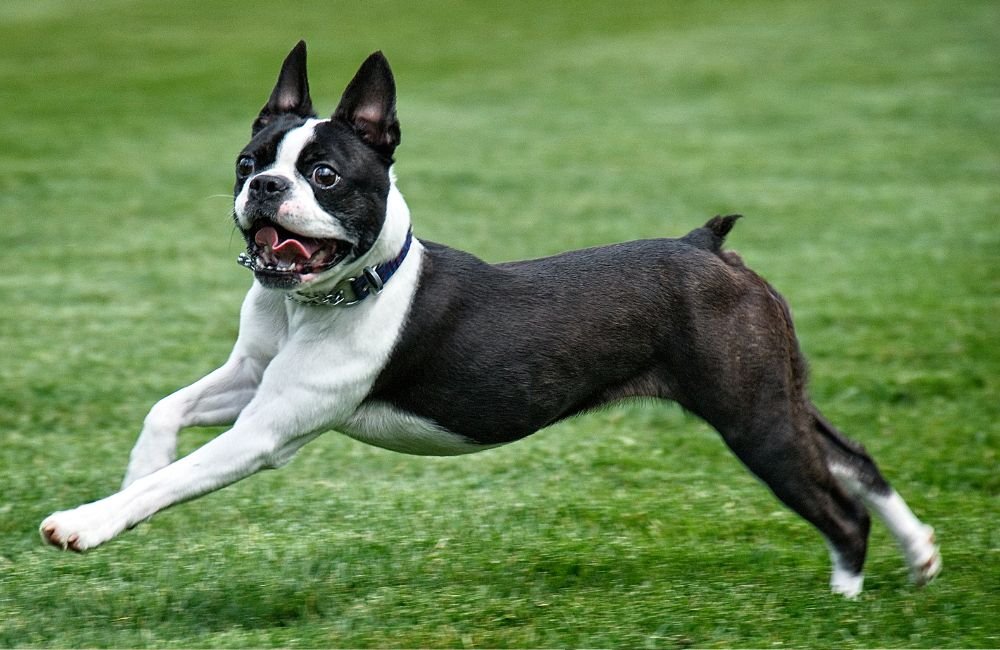French Bulldog vs Boston Terrier for First-Time Owners
Choosing between a French Bulldog and Boston Terrier as your first dog can feel overwhelming. Both breeds offer unique characteristics that make them excellent companions for novice pet owners.
Research shows that French Bulldogs had a higher prevalence of congenital vertebral malformations (96.8%) compared to British Bulldogs (90.47%) and Pugs (76.74%).
Understanding Their Personalities
French Bulldogs are known for their laid-back and easygoing nature. These affectionate companions prefer a quieter lifestyle, making them perfect for apartment dwellers or those who enjoy a more relaxed pace of life. Their calm demeanor makes them excellent therapy dogs and emotional support animals.
Boston Terriers, while equally loving, bring more energy to the table. These spirited dogs have a playful personality that shines through in their daily activities. They excel in various dog sports and maintain a good balance between active play sessions and relaxation time.
Both breeds share an incredible capacity for human companionship, forming strong bonds with their families. Their adaptable nature makes them suitable for various living situations, from busy households to single-person homes.
Physical Characteristics and Size
French Bulldogs possess a distinctive stocky build, standing approximately 13 inches tall. Their iconic bat-like ears and muscular frame give them a unique appearance. These compact dogs typically weigh between 17-33 pounds, making them easy to handle for first-time owners.
Boston Terriers present a more athletic build, reaching heights up to 17 inches. Their tuxedo-like markings and pointed ears create an elegant appearance that sets them apart. Despite their taller stature, they maintain a lean physique, weighing between 15-25 pounds.
Exercise and Activity Requirements
Boston Terriers demonstrate higher energy levels, requiring about an hour of daily exercise. They thrive on interactive play sessions and enjoy activities like fetch and short runs. However, their exercise needs remain moderate compared to more athletic breeds.
French Bulldogs prefer a more relaxed exercise routine. Short walks and casual play sessions satisfy their physical needs. Their lower energy requirements make them ideal for owners who prefer brief outdoor activities rather than lengthy exercise sessions.
Health Considerations
Both breeds belong to the brachycephalic family, meaning they have shortened snouts that can lead to breathing difficulties. This characteristic requires special attention during hot weather and intense activities.
French Bulldogs may face specific health challenges related to their compact build. Regular veterinary check-ups help monitor potential issues with their eyes, heart, and back. Their average lifespan extends beyond 10 years with proper care.
Boston Terriers typically enjoy slightly longer lifespans, averaging 12-14 years. They may experience issues with cataracts and occasional seizures. However, their generally robust health makes them resilient companions.
Training and Socialization
Training success depends on consistency and positive reinforcement for both breeds. French Bulldogs show an independent streak, requiring patience during training sessions. Their stubborn nature means progress might take longer, but they respond well to gentle guidance.

Boston Terriers typically learn commands more quickly, showing enthusiasm for training activities. Their eager-to-please attitude makes them excellent candidates for basic obedience and even advanced training programs.
Cost and Maintenance Breakdown
Initial Investment:
-
Boston Terrier: $1,000-$3,000
-
French Bulldog: $2,000-$4,000
-
Basic supplies and equipment
-
Initial veterinary visits
Are These Breeds Suitable for Working Professionals?
French Bulldogs adapt exceptionally well to working households due to their lower energy requirements and ability to stay calm when alone. They can manage a few hours of solitude after proper training, though they should not be left alone for extended periods.
Boston Terriers show similar adaptability but may require more mental stimulation during alone time. Their higher energy levels mean they benefit from interactive toys or puzzle feeders when their owners are away.
What Are the Exercise Differences in Hot Weather?
Both breeds require special attention during warm weather due to their brachycephalic nature. French Bulldogs are particularly sensitive to heat and need shorter, less intense exercise sessions during summer months.
Boston Terriers, while also heat-sensitive, can typically handle slightly longer exercise periods. However, all activities should be scheduled during cooler parts of the day for both breeds.
How Do Their Social Skills Compare?
French Bulldogs tend to be more reserved with strangers initially but form deep bonds with their families. They require early socialization to develop confident, well-rounded personalities.
Boston Terriers generally display more outgoing social tendencies and adapt quickly to new people. Their friendly nature makes them excellent therapy dogs and social companions.
What Are Their Noise Levels Like?
French Bulldogs are generally quieter but are known for making distinctive snoring and grunting sounds due to their facial structure. They rarely bark without reason, making them suitable for apartment living.
Boston Terriers might be slightly more vocal and prone to barking, though they are not considered excessive barkers. Their alertness makes them more likely to vocalize when they notice unusual activities.
Frequently Asked Questions
Which breed adapts better to apartment living?
Both breeds adapt well to apartment living, but French Bulldogs may be slightly better suited due to their lower exercise requirements.
Are these breeds good with children?
Both breeds show excellent compatibility with children, though supervision is always recommended. French Bulldogs tend to be more patient, while Boston Terriers offer more playful interaction.
How often do they need grooming?
Both breeds require minimal grooming due to their short coats. Weekly brushing and regular cleaning of facial folds are sufficient.
Can they be left alone during the day?
While both breeds prefer company, they can adapt to being alone for moderate periods with proper training. French Bulldogs may experience slightly more separation anxiety.
Conclusion
Both French Bulldogs and Boston Terriers make excellent choices for first-time dog owners. French Bulldogs suit those seeking a calmer companion with moderate exercise needs, while Boston Terriers appeal to more active individuals. Consider your lifestyle, living situation, and activity level when making your choice.







